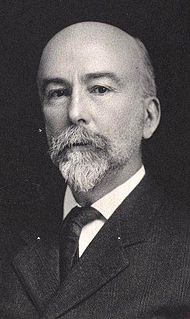A Quote by John Stuart Mill
Truths are known to us in two ways: some are known directly, and of themselves; some through the medium of other truths. The former are the subject of Intuition, or Consciousness; the latter, of Inference; the latter of Inference. The truths known by Intuition are the original premisses, from which all others are inferred.
Related Quotes
There are several kinds of truths, and it is customary to place in the first order mathematical truths, which are, however, only truths of definition. These definitions rest upon simple, but abstract, suppositions, and all truths in this category are only constructed, but abstract, consequences of these definitions ... Physical truths, to the contrary, are in no way arbitrary, and do not depend on us.
Being aware of truths about what is good or right or about what we ought to do is not the same as deciding what to do. Nor can the former truths be derived from decisions about what to do, or about procedures for making such decisions, unless these procedures themselves rest in some way on the apprehension of truths about what we ought to do.
Jesus Christ doesn’t just give us truths; he is the truth. Jesus Christ is the prophet to end all prophets. He gives us hard-copy words from God, truths on which we can build our lives, truths we have to submit to, truths we have to obey, and truths we have to build our lives on, but he himself is the truth.
"We hold these truths to be sacred and undeniable" in a draft of the Declaration of Independence changes it instead into an assertion of rationality. The scientific mind of Franklin drew on the scientific determinism of Isaac Newton and the analytic empiricism of David Hume and Gottfried Leibniz. In what became known as "Hume's Fork" the latters' theory distinguished between synthetic truths that describe matters of fact, and analytic truths that are self-evident by virtue of reason and definition.
There are different kinds of truths for different kinds of people. There are truths appropriate for children; truths that are appropriate for students; truths that are appropriate for educated adults; and truths that are appropriate for highly educated adults, and the notion that there should be one set of truths available to everyone is a modern democratic fallacy. It doesn't work.
It was possible, maybe, to have facts in your mind that weren't facts at all. You could build a whole life's story on false assumptions. You could make truths out of untruths and untruths out of truths. Until you spoke them, really said them out loud or checked for sure, you may not have known which were which.
So multifarious are the different classes of truths, and so multitudinous the truths in each class, that it may be undoubtingly affirmed that no man has yet lived who could so much as name all the different classes and subdivisions of truths, and far less anyone who was acquainted with all the truths belonging to any one class. What wonderful extent, what amazing variety, what collective magnificence! And if such be the number of truths pertaining to this tiny ball of earth, how must it be in the incomprehensible immensity!
The very foundation of our science is only an inference; far the whole of it rests an the unprovable assumption that, all through the inferred lapse of time which the inferred performance of inferred geological processes involves, they have been going on in a manner consistent with the laws of nature as we know them now.









































